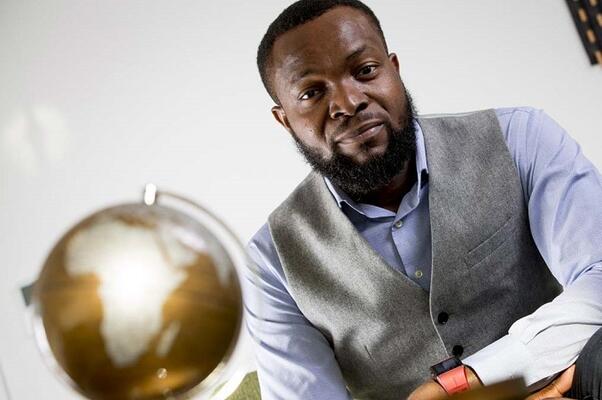
The ITC fellowship experience: what happened next
International Trade Forum sat down with Bosun Tijani to discuss his time as a fellow with ITC – and how this shaped what he did after
Bosun Tijani: I had the rare privilege of being an International Trade Centre (ITC) and Hewlett Packard (HP) fellow in 2004/2005. As a young graduate of economics from Lagos, Nigeria, spending time across 12 months between ITC and HP in Geneva was beyond my imagination.
The first three months of the fellowship programme were spent with ITC’s enterprise development section with significant support from the section chief. While the application was made through AIESEC (an international student exchange organization) my preparation for the fellowship was entirely taken care of by ITC. Everything felt right from day one.
The three months was a crash course on international trade. I was challenged to learn by exploring tools and materials, reviewing programmes, giving feedback and building cases for opportunities in international trade, with a particular focus on African countries. The experience molded me for the task ahead at Hewlett Packard.
At HP I was attached to the education team as deployment lead for Africa. - Dropped right in the middle of the Microenterprises Acceleration Programme, I was responsible for supporting the identification of business development service providers who received support from HP to coach microenterprises in select African countries. The programme was aimed at coaching businesses on how to leverage technology for improved performance.
My fellowship experience remains a significant part of my personal evolution. It wasn’t only professionally enriching but also shaped my overall view of society and the role of systems.
FW: What kind of business are you in now?
BT: I am the co-founder and CEO of Co-Creation Hub (CcHUB), a technology innovation centre and start-up incubator, based in Lagos, Nigeria.
The centre is Nigeria’s foremost open-living lab, designed as space where work to catalyze creative social-tech ventures takes place. Among so many things, CcHUB is renowned for its role in building one of the fastest-growing technology clusters in Africa and also for being the first point of call for Facebook CEO Mark Zuckerberg on his first trip to Africa.
FW: After ITC, what path did you take?
BJ: The experience with ITC ignited a new level of curiosity in me for the place of technology in society and more importantly, enterprises. I enrolled in a masters degree programme in information systems and management at the Warwick Business School in the United Kingdom. There I had the opportunity to study technology and innovation management within large enterprises with exposure to businesses like Accenture, NHS, SAP and many more. Upon completion in 2007 I got a job as a research network manager with one of Europe’s leading innovation consulting firms.
Altogether, the opportunities inspired a passion in me to explore how society organizes to leverage science and technology for prosperity. This gave birth to a desire to contribute to a movement in Africa, one geared towards harnessing the gains from collaborative problem solving and technology to leapfrog the growth of the continent. It was this that propelled me towards founding Co-Creation Hub.
FW: What advice do you have for other ITC fellows?
BJ: ITC is an incredible place. The organization’s approach to supporting international trade, placing enterprises at the core, makes it incredibly rich in knowledge and networks. The depth of the body of knowledge developed over the years and available across the entire organization makes it an invaluable platform for curious people.
My advice would be for fellows to immerse themselves in the wealth of knowledge available across the organization. Explore the amazing work done across the different divisions and sections. It will shape your thinking and give you a unique voice.
The tools and knowledge available at ITC are of incredible value. Hence the reason I would encourage fellows to take proper advantage of them. It is one of the few places where knowledge on international trade is put to actual use for the benefit of businesses.
FW: What advice do you have for other entrepreneurs?
BJ: I consider myself an accidental entrepreneur. My journey into entrepreneurship was inspired by the desire to build a platform that provides the building blocks for the application of technology in society. More specifically, I see the urgent need to accelerate how we apply social capital and technology in addressing many of the social challenges in Africa.
The most successful entrepreneurs in my opinion are those who consciously put in the incredible amount of work into creating unprecedented value for society. While it is possible to be successful when driven simply by money, creating a lasting and sustainable business in today’s changing world begs for more. As such, I see entrepreneurs as creators constantly seeking to make our world just a little better.



